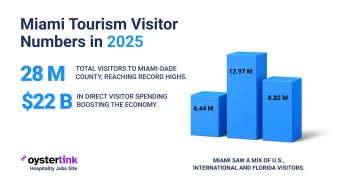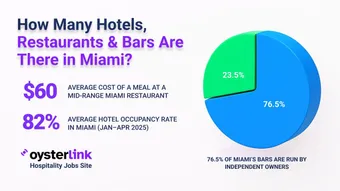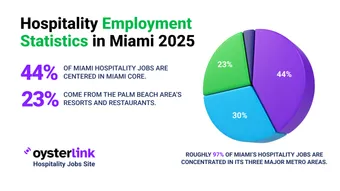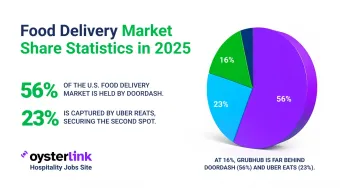Bismarck/ND Cost of Living: Quick Takeaways
- Housing Costs: The average rent for a one-bedroom apartment in Bismarck will reach approximately $1,050 in 2025.
- Transportation Expenses: Public transit costs are low with one-way fares at $1.50 and monthly passes at $45, while fuel costs average $3.00 per gallon.
- Healthcare Costs: Employer-sponsored health insurance averages around $150 monthly with Silver plans at about $500 per month.
- Income Levels: Median household income in Bismarck is projected to be $72,000 in 2025.
Bismarck offers an affordable cost of living compared to national averages, with particular savings in housing and healthcare. This article explores detailed expenses for various living categories in Bismarck as of 2025.
By understanding these costs, residents and those considering moving can make informed financial decisions.
1. Housing Costs in Bismarck/ND
Housing expenses form a major part of living costs. Below is the progression of average rent prices for one-bedroom apartments:
- 2010: Approximately $600
- 2015: Around $750
- 2020: Approximately $900
- 2024: Reached $1,000
- 2025: Projected to reach $1,050
This steady rise in rental prices reflects increasing demand and economic development in Bismarck.
2. Homeownership and Real Estate Trends in Bismarck/ND
For prospective homeowners, median home prices have shown consistent growth:
- 2010: Median home price was about $150,000
- 2015: Increased to approximately $200,000
- 2020: Rose to about $250,000
- 2024: Reached $275,000
- 2025: Forecasted at $280,000
This trend indicates a relatively affordable housing market compared to national levels, attracting both investors and residents.
Understanding local real estate trends can be critical for hospitality businesses looking to attract staff or expand. See more about hospitality real estate market trends.
3. Transportation Expenses in Bismarck/ND
Transportation costs in Bismarck are generally low, reflecting its smaller size and efficient public transit options:
- Public Transit: One-way fares cost about $1.50, with monthly passes priced around $45.00
- Fuel Costs: Gasoline averages $3.00 per gallon as of 2025
- Vehicle Maintenance: Annual maintenance expenses average $1,000
The affordability of transportation here helps reduce overall living costs.
4. Utility Costs in Bismarck/ND
Monthly utility bills for an average household include:
- Electricity: Approximately $120.00 per month
- Internet Services: Around $50.00 monthly
- Total Utilities: Estimated at $170.00 monthly
These costs are representative of typical usage for an average size home.
5. Grocery and Food Expenses in Bismarck/ND
Food expenses align closely with national averages, affecting household budgets moderately.
Monthly grocery costs per person approximate $250.00. Dining out spans from casual meals at $12 to mid-range restaurant dishes costing about $40.
Hospitality establishments in Bismarck can consider these average meal costs when designing menus and pricing. For restaurant owners, effective hiring remains crucial; check strategies related to restaurant staff hiring to keep costs manageable while maintaining quality.
6. Healthcare Costs in Bismarck/ND
Healthcare spending includes various insurance and out-of-pocket fees.
Employer-sponsored health insurance premiums average about $150 monthly, while Silver plan premiums are around $500 per month.
7. Educational Expenses in Bismarck/ND
Education in Bismarck includes options from free public schools to private and higher education:
- Public Schools: No direct tuition fees as they are publicly funded
- Private Schools: Average tuition is approximately $8,000 annually
- In-State University: Tuition averages around $8,000 per year
Costs vary by institution but remain manageable for many families.
8. Entertainment and Leisure in Bismarck/ND
Recreation and leisure activities add to lifestyle quality and expenses:
- Movie Ticket: Costs about $10 each
- Gym Membership: Approximately $40 monthly
- Mid-Range Restaurant Meal: Around $40 per meal
Annual spending on entertainment expenses averages $2,000, while personal care services average $600 and miscellaneous goods and services cost an additional $500.
9. Taxes and Miscellaneous Fees in Bismarck/ND
Local and state taxes influence overall affordability:
- State Income Tax Rate: Ranges from 1.1% to 2.9%
- Sales Tax: Bismarck's combined sales tax rate is approximately 5%
- Property Tax Rate: Approximately 1.0% of property value
Residents should consider these taxes when budgeting.
10. Childcare and Family Expenses in Bismarck/ND
Family-related expenses include childcare and educational support programs:
- Daycare Services: Typically $800 monthly
- After-School Programs: Around $300 per month
- Extracurricular Activities: Estimated $100 monthly
These costs are important for parents planning household budgets.
11. Clothing and Personal Care in Bismarck/ND
Monthly spending on personal items includes:
- Clothing: Approximately $100
- Personal Care: Around $50 for grooming and related items
These expenses vary by lifestyle but represent typical amounts for residents.
12. Insurance Costs in Bismarck/ND
Insurance plays a key role in financial planning:
- Health Insurance: Silver plan premiums average $500 monthly
- Auto Insurance: Annual premiums approximately $1,200
- Homeowners Insurance: About $1,000 per year
- Renters Insurance: Around $200 annually
These costs provide essential protection for residents and property owners.
13. Miscellaneous Expenses in Bismarck/ND
Other living costs contribute to the overall financial picture:
- Entertainment: Annual spending averages $2,000
- Personal Care Services: About $600 annually
- Miscellaneous Goods and Services: Around $500 per year
These broad categories cover various discretionary expenditures.
14. Income and Salaries in Bismarck/ND
Median household incomes have grown steadily in recent years:
- 2010: Around $55,000
- 2015: Increased to approximately $60,000
- 2020: About $65,000
- 2023: Near $70,000
- 2025: Projected at $72,000
This increasing trend suggests improving economic conditions.
For hospitality employers in Bismarck, understanding local salaries is important for competitive hiring. Explore career resources like the comprehensive restaurant manager salary guide or the detailed how to hire a restaurant manager spotlight for optimized recruiting.
15. Comparison with National Averages
In general, Bismarck's cost of living remains below national averages, improving affordability:
- Overall Cost of Living: Approximately 5% lower than national average
- Housing Costs: About 10% less expensive than national average
- Utilities: Roughly 5% below national norms
- Food Expenses: About 3% cheaper
- Healthcare: 7% more affordable
- Transportation: 2% below average
- Goods and Services: Roughly 4% less costly
These differences highlight Bismarck as a relatively affordable city to live in.
Our Methodology for Bismarck Cost of Living Figures
Our cost of living estimates are compiled using extensive data from sources such as the Bureau of Labor Statistics, Numbeo, Zillow and regional government data. When exact data is not available, reasonable estimates based on trends and similar cities are used to provide an accurate cost profile.
Bismarck Cost of Living: Conclusion
Bismarck offers a balanced cost of living with many expenses below national averages, especially in housing, healthcare and utilities. Affordable transportation and steady income growth further enhance its appeal.
For those seeking reasonable living costs in the Northern Plains, Bismarck presents attractive options across housing, services and lifestyle expenditures.
Understanding the detailed breakdown of costs can aid residents and future movers in making savvy financial decisions when considering Bismarck as their home.
Hospitality employers in Bismarck can benefit from adopting strategies to reduce employee turnover to ensure a stable workforce in this affordable living market.




